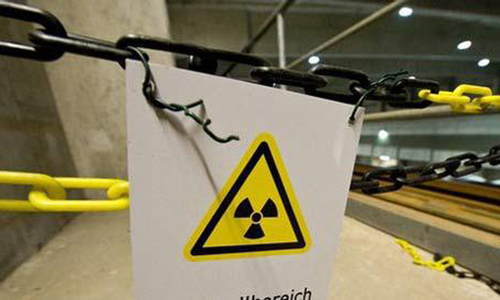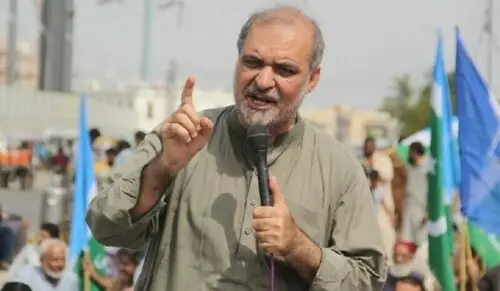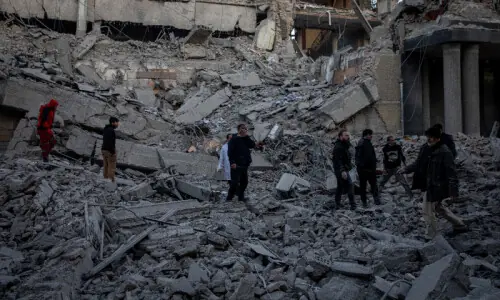ISLAMABAD: Foreign Secretary Aizaz Chaudhry proposed on Thursday partnership with India on nuclear safety and security.
He was speaking at the inaugural session of a conference, ‘Assessing South Asia’s Nuclear Security’, jointly organised by the Centre for International Strategic Studies (CISS) and the Atlantic Council, an American think tank.
Pakistan and India already have an agreement on nuclear accidents and an expert group on nuclear confidence building measures, though it is currently dormant because of freeze in ties.
The two countries are also signatories to several international conventions, including those on nuclear safety, early notification of a nuclear accident, assistance in case of a nuclear accident or radiological emergency and physical protection of nuclear material and facilities.
Under the conventions and instruments, Mr Chaudhry said, the two countries could share best practices, experience and expertise.
The proposal comes from the realisation that despite problems in their ties, the two countries have a special responsibility to cooperate in the field of nuclear security.
Suggesting cooperation on development of an independent regulatory framework, Mr Chaudhry said Pakistan had extensive experience in maintaining an independent nuclear regulatory body.
India is one of the few nuclear armed countries without an independent nuclear regulator.
The latest proposal comes after Pakistan last month proposed a bilateral moratorium on testing of nuclear weapons.
The proposal for bilateral moratorium was related to Pakistan’s candidature for the Nuclear Suppliers Group.
Other experts participating in the conference discussed different issues affecting strategic stability in South Asia — growing conventional imbalance, introduction of tactical nuclear weapons, nuclearisation of Indian Ocean region and Indian plans for ballistic missile defence — with a view to developing recommendations for policymakers. The conference also looked at the future trends.
The experts agreed that in the absence of an overarching restraint regime and institutionalised crisis management mechanisms, the strategic environment in the region remained fragile.
Introducing the conference theme, CISS Executive Director Ali Sarwar Naqvi said India’s acquisition of advanced weapons systems and sophisticated missile-defence systems, introduction of technologically advanced and sophisticated nuclear weapons and provocative war fighting doctrines under a nuclear overhang could only make strategic stability more fragile.
He pointed out that deepening Indo-US defence and strategic cooperation would disturb strategic balance in South Asia and might trigger an arms race in the region involving not only Pakistan and India but China also.
Bharat Gopalaswamy, Director South Asia at the Atlantic Council, said the two countries had to deal with similar challenges related to nuclear stability, safety and security.
Zahir Kazmi, a nuclear expert, said nuclearisation of Indian Ocean would affect security interests of all littoral states, in addition to impacting the regional and global security.
Dr Zafar Nawaz Jaspal, Associate Professor at the Quaid-i-Azam University, said India’s massive military build-up was causing strategic stability-instability paradox in the South Asian strategic environment.
India was disinterested in Pakistani proposal for nuclear restraint regime due to its advantageous position in the sphere of conventional arms, he said.
Published in Dawn, September 9th, 2016































